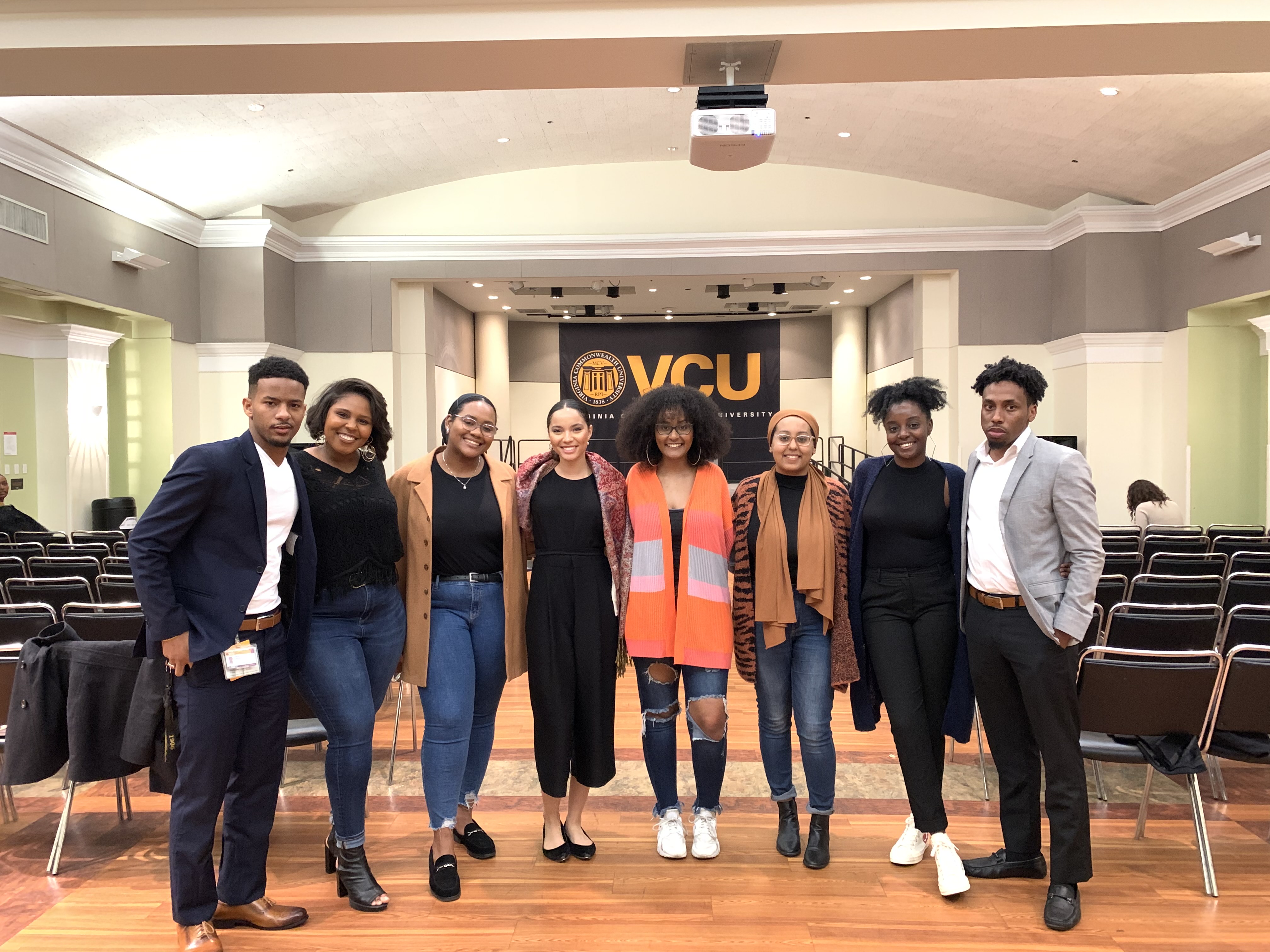
Black & Abroad panelists share tips on navigating your study abroad experience
Contact: Taylor Herndon
VCU Global Education Office
Phone: (804) 828-3636
global.vcu.edu
Richmond, VA (March 3, 2020) — From killing scorpions to working with Somali refugees, studying abroad is an amazing opportunity that can lead to eye-opening experiences. Many college students consider going abroad but some are afraid to take the leap for fear of things like not knowing how safe a destination might be, not connecting with a group of friends, or not knowing how to adapt to being a minority in a new environment.
A panel of six Virginia Commonwealth University students and alumni recently sat down to have a conversation addressing these and many other issues they faced while being black and abroad. To keep the conversation going, we’re sharing some of their insights on what it is like to be a black student abroad and how to make the most of your amazing experience.
Be prepared for the questions
Panelist Ruthann Tesfaye, an international studies major who studied abroad in Oaxaca, Mexico and South Africa used her experience abroad to teach children and adults how to speak English. Tesfaye spoke about how she used her presence as not only a learning experience but also as a teaching opportunity for the people she interacted with while abroad.
“You have to understand that being black in America is not the same as being black in another country,” she said.
“My host mom had never seen hair like mine before,” Tesfaye stated. She also spoke about how a classmate had to sit down with her host mother and explain what braids are, and why she had them in her hair.
Do your research
Tesafe also spoke about how a little research into cultural norms goes a long way and understanding small things, such as terms of endearment, can make a significant impact on your experience with the natives of your host country.
“Some people were not aware of different terms of endearments that Spanish speakers use,” she said. “They went straight to being offended by certain things. You have to understand the cultural differences when being abroad.”
Immerse yourself in the culture
While abroad, it is easy to try to fall into your daily routine rather than slowing down and immersing yourself into the culture around you.
Panelist Malik Afrifa, a biology major who is also minoring in chemistry studied abroad in Jamaica. Afrifa talked about his experience and the role that cultural immersion played in it.
“Let everything naturally flow when you study abroad. The fast-paced life that we live here in the U.S. is not usually the same abroad,” he stated.
Panelist Hanan Kourtu, who is currently pursuing her master’s degree at VCU, talked about how doing things as simple as getting coffee “to go” was different when studying abroad in Switzerland.
“When taking classes in Switzerland—which are like three hours long—we would take a break and go to a local cafe. They put our coffee in a cup for us to sit down and drink. We, as American students, asked if we could get our coffee in a “to go” cup. They responded with ‘here, your coffee break is like thirty minutes.’”
“They do not walk around with their coffee,” said Kourtu. “You sit down, enjoy your time and then go back to class.”
Make the most of your experience
We all love having people around who we can relate to, and finding those people while abroad can change your whole experience.
The study abroad experience is all about what you make it. When going abroad, there are lots of things to consider. To get the most out of your experience do these things: Ask questions. Try something new. Slow down. Take a mental break. Learn from the people around you. And just remember why you are there.
 Panelists: Malik Afrifa, Imani Thaniel (moderator), Brianna Griffin (moderator), Eden Gordley, Ruthann Tesfaye, Hanan Kortu, Jocelyn Boateng and Stephen Davenport.
Panelists: Malik Afrifa, Imani Thaniel (moderator), Brianna Griffin (moderator), Eden Gordley, Ruthann Tesfaye, Hanan Kortu, Jocelyn Boateng and Stephen Davenport.